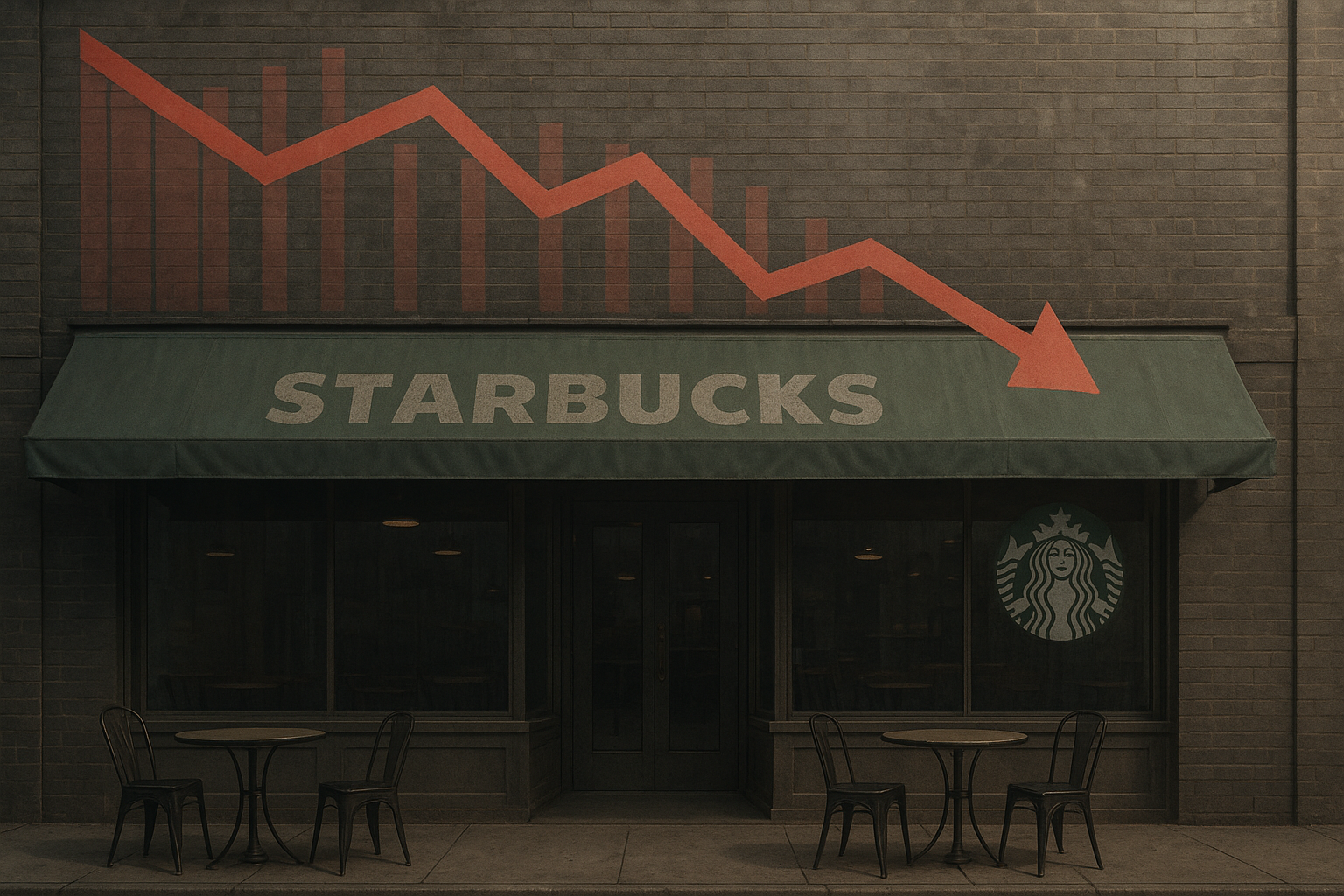Starbucks has just logged its sixth consecutive quarter of declining same-store sales. Six. In a row. That's longer than most people stick to their New Year's resolutions about cutting back on... well, expensive coffee.
The Seattle-based coffee behemoth—which essentially normalized the concept of dropping $7 on a cup of coffee with Italian-sounding specifications—seems to be in something of a tailspin. Their latest earnings report reads like a mixed bag of disappointments and "well, at least it wasn't worse" moments.
Let me break it down: Earnings per share hit 50 cents (analysts expected 65 cents—ouch), while revenue came in at $9.5 billion (actually beating expectations of $9.31 billion). Global same-store sales? Down 2%, which is worse than the 1.3% decline the market anticipated.
I've covered retail for years, and if there's one thing I've learned, it's that turnarounds are messy, unpredictable affairs. They're like trying to redirect a cruise ship with a canoe paddle—technically possible, but rarely elegant.
North American numbers were a strange bright spot, if you can call it that. Same-store sales dropped "only" 2% compared to the expected 2.5% decline. In today's Starbucks universe, declining less badly than expected apparently counts as a win. (It's the corporate equivalent of saying, "I'm not losing weight, but I'm gaining it slower than before!")
Then there's China—that perpetual carrot dangled in front of investors. Starbucks managed a 2% same-store sales increase there. Two percent! After years of "just wait till China recovers" narratives, that's... not exactly the roaring comeback shareholders have been promised.
Look, what we're witnessing isn't just a temporary blip. It's what happens when a mature brand collides with fundamentally changed consumer habits. Starbucks essentially invented the "third place" concept in America—not home, not work, but somewhere comfortable in between. The problem? That model faces challenges from multiple directions now.
First off, the pandemic scrambled everyone's routines. If you're working from home three days a week, that's potentially three fewer grande lattes in Starbucks' cash register.
Second, have you seen inflation lately? When people are staring at a receipt for nearly eight bucks for a fancy coffee drink, the math of "I could make this at home for pocket change" becomes harder to ignore.
Third—and this is something I've observed firsthand in markets across the country—competition has intensified dramatically. Dutch Bros is expanding aggressively. Local specialty shops have upped their game. Heck, even McDonald's has decent coffee now (words I never thought I'd write).
And don't get me started on operational execution. The mobile ordering system that was supposed to be a game-changer has created its own frustrations. I stood in a Chicago Starbucks last month watching three separate customers ask about mobile orders that were supposedly ready 15 minutes earlier. Not exactly the "third place" experience the brand was built on.
The company says they're hosting U.S. store managers for a three-day event to realign priorities. That's... fine? But after six straight quarters of decline, this feels less like a quick fix and more like a company that needs to fundamentally rethink parts of its business model.
It reminds me of McDonald's struggles in the mid-2010s—another massive brand that temporarily lost its way. Their eventual turnaround combined a return to basics (all-day breakfast) with modernization (store redesigns, digital ordering).
Starbucks might need a similar recipe. The company that convinced Americans to use Italian sizing terminology has overcome challenges before, but this particular slump seems deeper than most.
Meanwhile, investors are left wondering whether this is just a temporary caffeine crash or something more permanent. For a brand built on consistency and comfort, these persistent declines suggest the path back to growth might require more than just seasonal drinks and mobile app tweaks.
It might require admitting that the "third place" concept itself needs a refresh for a world where work, home, and everything in between has been fundamentally reimagined.
